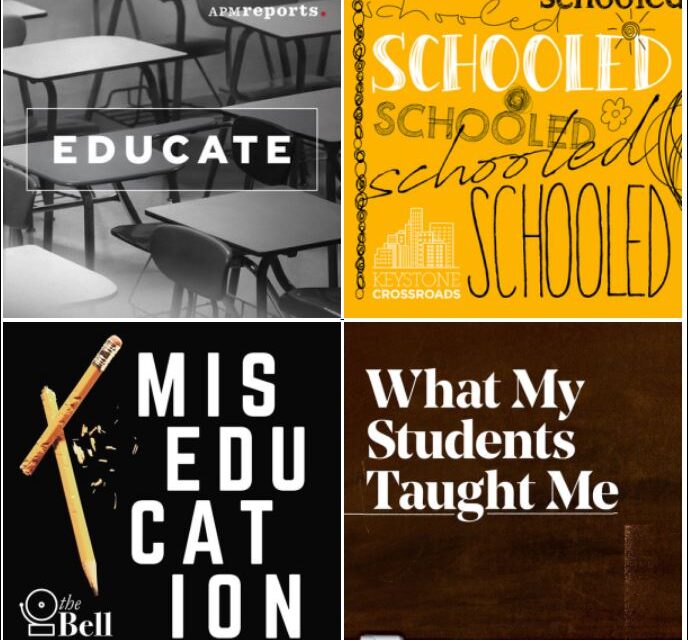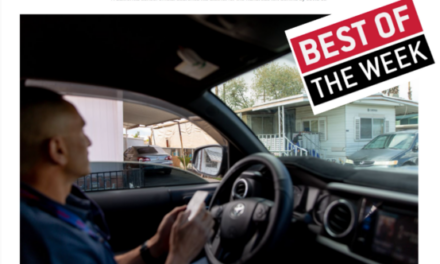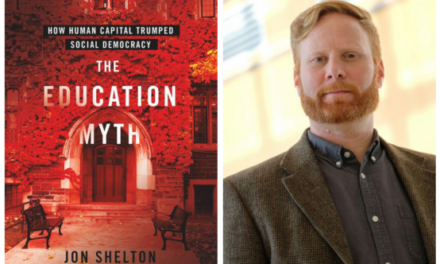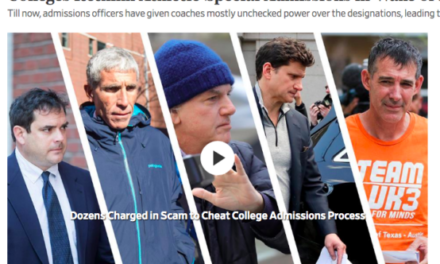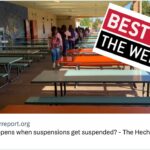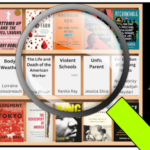Go for it – podcasts can be amazing. But collaborating with others might be your best bet.
By Alexander Russo
This past Friday, The Marshall Project debuted a feature story about incarcerated teenagers trying to get an education in New Orleans. The Hardest Lesson on Tier 2C is an in-depth look at whether kids can learn in a school located in a violent New Orleans jail.
But in these days of super-ambitious long-form journalism, a standalone digital piece isn’t enough. So the Marshall Project story is accompanied by a This American Life segment that began airing over the weekend and is now available online as a podcast.
This kind of mixed-format collaboration among different outlets seems to be increasingly popular lately – especially when it comes to podcasts, the rich media pieces that have been growing in popularity in recent years.
It’s clear that podcasts – the term usually refers to a piece of audio that’s available on demand rather than broadcast – are having a bit of a moment now. The Education Writers Association (EWA) national conference last month featured two different podcast panels. “Learn how you, too, can pivot to audio,” blared the promotional copy for one of them. The other: “Podcasts are hot! Get the basics on how to launch your own.”
But good podcasts are not nearly as easy to produce as it may seem. The standard – producing something that’s good enough for someone to listen to for more than a few minutes and subscribe to over a longer period of time – is much higher than it is for all but the longest feature stories.
So, while you definitely need to know about them and to follow some of the best ones, think twice about whether to try and produce one on your own. Yours might be the one who gets it right. But don’t feel you have to produce one just because they’re “in” right now. You and your audience will likely regret it.
The Grade takes a deeper look at education journalism. Sign up here for the free weekly newsletter.
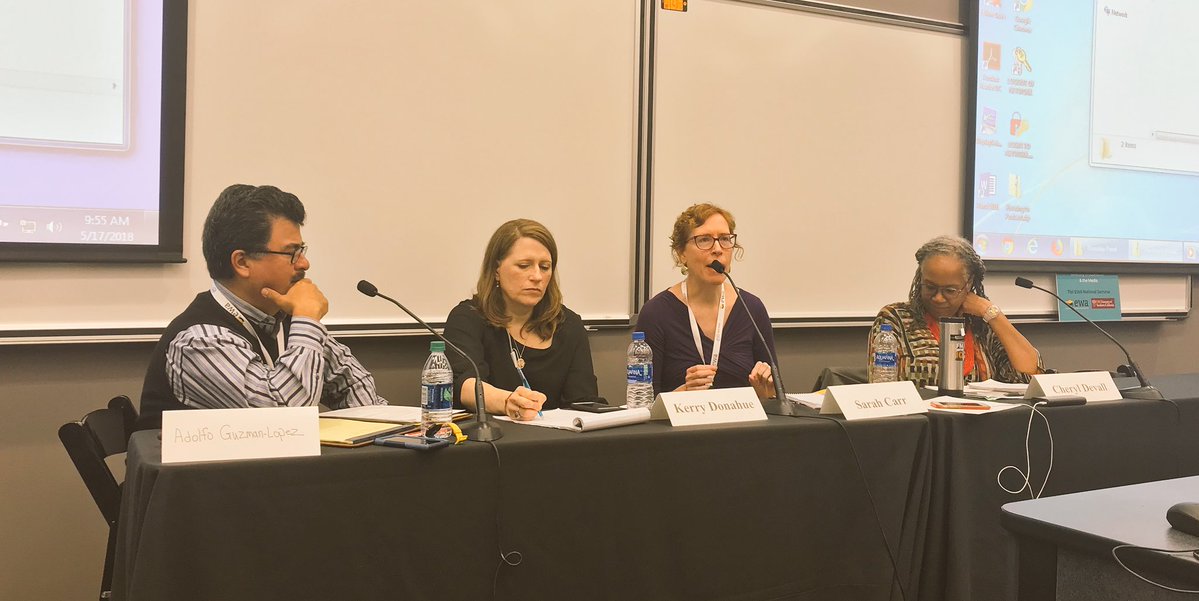
Journalists discussing podcasting at last month’s Education Writers Association conference in Los Angeles. Image via Liane Hy
There are lots of reasons for podcasts’ current popularity. Many of the best feature strong narrative elements – carefully drawn characters, dramatic turns of events. Others feature charismatic hosts. They can be enormously engaging. They tend to go deep and feature strong stories and characters. There’s an intimacy to the way they are delivered into your ears while you commute to work or do the dishes. They allow a certain amount of multitasking.
The momentum behind podcasts is so strong that even journalists sometimes refer to anything that’s audio as a podcast.
But not all audio is a podcast. (The term refers to the mobile-ready, subscription-based delivery method, not the content.) And there are some intimidating challenges for anyone who wants to produce something that’s going to get and keep listeners.
By all accounts, there’s a LOT of reporting and editing and writing that’s involved behind the scenes. (In addition to highly edited audio, high-end podcast series also often come with web browser versions of the podcast, complete with graphics, video, and all the rest.) Finding the best ones on a particular topic can be a challenge. Listening to them takes a lot of time.
These challenges may be why several radio-focused outfits like NPR’s education team and WBEZ Chicago don’t have them.
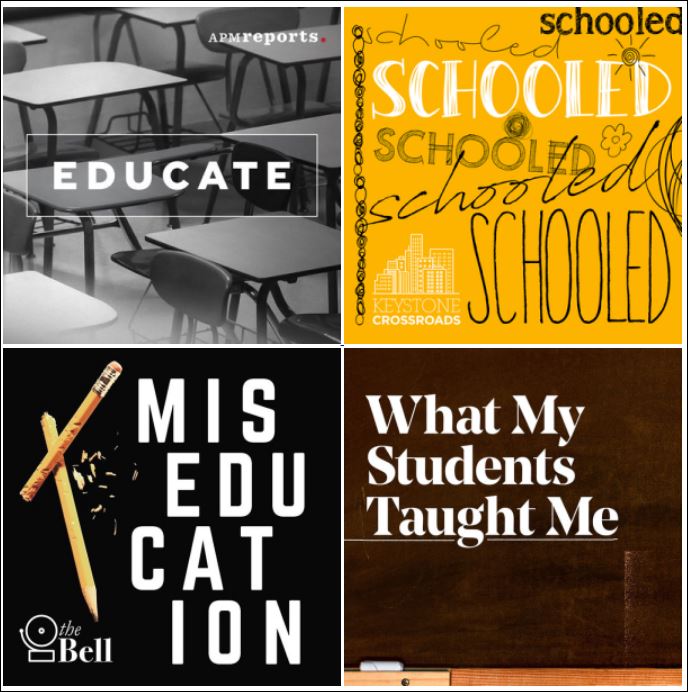
Four education podcast series produced by or with a news outlet: APM Report’s Educate, WHYY/Keystone Crossroads’ Schooled, Bell Voices’ Miseducation, and The Teacher Project’s What My Students Taught Me.
In fact, many of the education podcasts out there are being produced by educators, nonprofits, and advocates rather than education journalists. The Education Trust has a podcast called ExtraOrdinary Districts featuring “ordinary school districts that get extraordinary results.” Jennifer Berkshire and Jack Schneider cohost a left-leaning podcast called Have You Heard. There’s also swampED, which is produced by a group of former Obama administration staffers who riff on topics like how the Obama White House Science Fair came to be.
A few education-themed podcast series are produced in-house by news outlets and journalism support organizations: KQED’s MindShift, produced by Katrina Schwartz, has been around longer than most. WHYY’s Schooled podcast is now heading into its third season. Each week, EWA public editor Emily Richmond interviews an education journalist as part of EWA Radio. (The most recent episode features Lauren FitzPatrick of the Chicago Sun-Times sharing her successful techniques for staying ahead of the curve on open records requests.)
Here and there, a general-interest podcast will pull off a standout education episode on its own. For example, Malcolm Gladwell’s Revisionist History series reconsidered the impact of the Brown v. Board of Education decision. This American Life has produced some memorable education episodes on its own, including Three Miles, A Not-So-Simple Majority, and the one I love so much about the tyrannical school maintenance man in Schenectady, N.Y.
Some of the best work, though, has been produced in collaborations between education journalists and long-form audio specialists bringing their expertise (and their audiences) together:
A much-discussed collaboration from last year was Raising Kings, a three-part series about an all-boys high school in Washington DC reported by NPR’s education team and Education Week and distributed by NPR’s Code Switch podcast about race and culture.
One of my favorite new podcasts in recent years has been “What My Students Taught Me,” a production of The Teacher Project in partnership with The Atlantic. It’s almost like a StoryCorps series.
Two notable collaborations from This American Life include Harper High, a two-part collaboration with WBEZ Chicago’s Linda Lutton about a struggling Chicago high school, and The Problem We All Live With, a two-part collaboration with the New York Times’ Nikole Hannah-Jones about school segregation.
Other notable podcast collaborations include Educate, produced by APM Reports (formerly American RadioWorks) in collaboration with the Hechinger Report, which covers a wide variety of topics, and Miseducation, a Bell Voices collaboration with the Hechinger Report focusing on NYC schools that’s also produced by students.
The Grade takes a deeper look at education journalism. Sign up here for the free weekly newsletter.
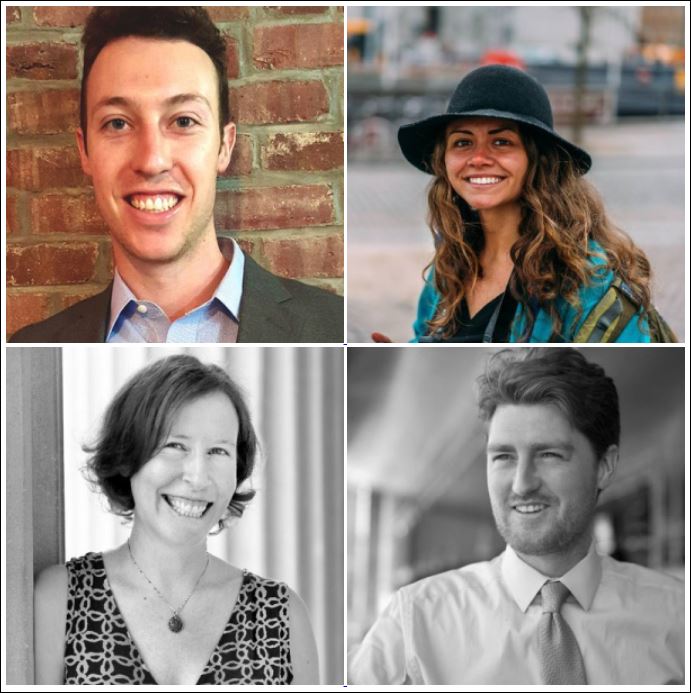
Clockwise from top left: Taylor McGraw (Miseducation), Alex Baumhardt (Educate), Kevin McCorry (Schooled), and Sarah Carr (What My Students Taught Me).
Of course, there’s nothing stopping an education outlet or team from producing a great podcast on its own. But, based on what I can see out there, collaboration helps enormously. Even education reporters who work in radio describe the transition to podcasts as a challenge.
“There’s a pretty steep learning curve in trying to do audio well,” says WHYY’s Kevin McCorry, citing a long list of considerations and additional steps that are involved in the process of producing a high-quality podcast. “It’s not something you can slap together.”
For podcasters who may be interested in schools, collaborations with education journalists can also help ensure that podcasts aren’t tackling complex education issues with no expertise in the field. Not too long ago, an NPR podcast called Embedded had to correct a story that mistakenly connected NCLB and private school vouchers (a surprisingly common mistake).
What else might help you produce a high-quality education podcast series? Here are some ideas from experts, practitioners, and fans of podcasts:
STUDENT VOICES: Getting more kids’ voices into the stories is critical when it comes to making great education podcasts, according to several of those interviewed for this piece. “I decided that students’ voices were missing from education coverage,” says Taylor McGraw, who helps produce MisEducation, “and I really wanted to fix that.” He also decided to involve students in reporting and production. “They provide a perspective and an expertise that’s lacking right now.”
DIVERSE VIEWPOINTS: “Much of what we talk about in education reporting has to do with race, access, and equity,” notes APM Report’s Alex Baumhardt. “So having a more diverse group of characters, hosts, storytellers at the heart of these shows will be key to making them feel relevant to a larger audience.”
BIG STAKES: “When you are going to deal with a big audio documentary or multipart series, I think what’s important is that you look at some really big topic, like dropouts, like poverty,” says WBEZ’s Linda Lutton, the lead reporter on last year’s much-admired audio documentary The View From Room 205. “When your focus is on something too narrow, the stakes don’t seem high enough.”
SHORT AND SWEET: “Podcasts don’t have to be hourlong (or even half-hour) multipart investments,” notes EWA’s Richmond, who produces a weekly podcast that regularly comes in at under 30 minutes.
The absence of any go-to education podcasts is a common lament among journalists involved in creating them. Depending on your perspective, that’s either a cautionary tale or a welcome challenge.
But despite the many obstacles, veterans such as WHYY’s McCorry and WBEZ’s Lutton still recommend the format.
“I would say absolutely do it,” says McCorry. He finds that producing a podcast grounds his reporting in stories about individuals and gives him a more human-centered view of education policy and politics than he previously felt he had.
“Audio can get people to places of understanding in ways that can be harder to achieve through print,” says Lutton. A great piece of audio journalism helps listeners “feel closer to the dilemmas that people face, the places they live, and to understand something more deeply.”
Related coverage from The Grade:
Innovation in education journalism
Fifteen newsletters you need to know about if you really love education journalism
Favorite education bylines, teams, and outlets for Spring 2018
Praise and a wish for more from ‘Raising Kings’
Some Questions About This American Life’s School Integration Story
ABOUT THE AUTHOR

Alexander Russo
Alexander Russo is founder and editor of The Grade, an award-winning effort to help improve media coverage of education issues. He’s also a Spencer Education Journalism Fellowship winner and a book author. You can reach him at @alexanderrusso.
Visit their website at: https://the-grade.org/

